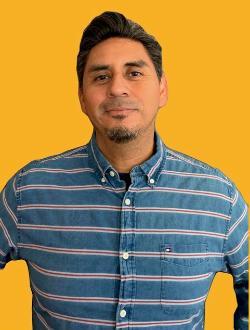 UF Center for Latin American Studies
UF Center for Latin American Studies
Days: Wednesdays
Times: 3:00 - 6:00 pm
Location: Leigh 0142
Documenting the histories of the Latin American diaspora necessitates approaches that draw upon the cultural resources within local communities. As Chandra Talpade Mohanty (2003) emphasizes, cross-cultural and feminist scholarship must be attuned to the lives and interests of those living on the margins. In other words, our interdisciplinary research designs should focus on capturing the bodies of knowledge that underline the every day, encompassing both the micropolitics of daily life, “as well as the micropolitics of global economic and political systems and processes.” Therefore, this course centers on knowledge sources such as oral histories, stories, pláticas, and testimonios as primary methods of conveying history. These approaches help share cultural memories, challenge dominant narratives, and empower Indigenous, Black, Chicanx, Latinx, and Latin American voices.
Together we will explore the powerful literary genre of the testimonio and the rich tradition of oral history and pláticas within the fields of Chicanx, Latinx and Latin American Studies. Students will learn how testimonios, first-person narratives of marginalized communities from Latin America, serve as crucial tools for understanding social, political, and cultural realities often overlooked in mainstream historical accounts. For instance, how Honduran labor activist testimonios offer us access to the inner workings of power and the most inclusive paradigm for thinking about working class struggles in Central America in the 1950s. Additionally, students will engage with both theoretical frameworks and practical applications of these methodologies, gaining a deep understanding of their significance in Latin American and Latinx Studies.
Lastly, this course centers on both the methods and the ethics of conducting research. Such as engaging in the following questions: What is involved in collecting oral histories, pláticas, and testimonios that require communication with human beings? What tools can we employ as we face the power relations inherent in this kind of historical practice? These are complicated questions with no easy answers, but we will spend the semester thinking together about how to design interdisciplinary methodologies, how to navigate our roles as researchers and community members, and explore how to produce work that is rigorous and meaningful to different audiences.
The course will feature guest speakers, including community elders, activists, and oral historians, who will share their experiences and expertise. Students will also have the opportunity to visit local archives and community centers to gain hands-on experience with oral history collections.
 Rafael Ramirez Solórzano
Rafael Ramirez Solórzano
Assistant Professor
Center for Latin American Studies
360 Grinter Hall
E-mail: r.solorzano@ufl.edu
Phone: 352-392‐4672
Research Interests
Latinx Social Movements with focus on Gender and Sexuality, Racial/Latinx Geographies, Women of Color Feminism, Queer of Color Critique, Latina/o/x Political Theory, Relational Racialization, Qualitative and Archival Research Methods
Geographic Expertise
United States (U.S. Southwest, U.S. South), Mexico, Central America